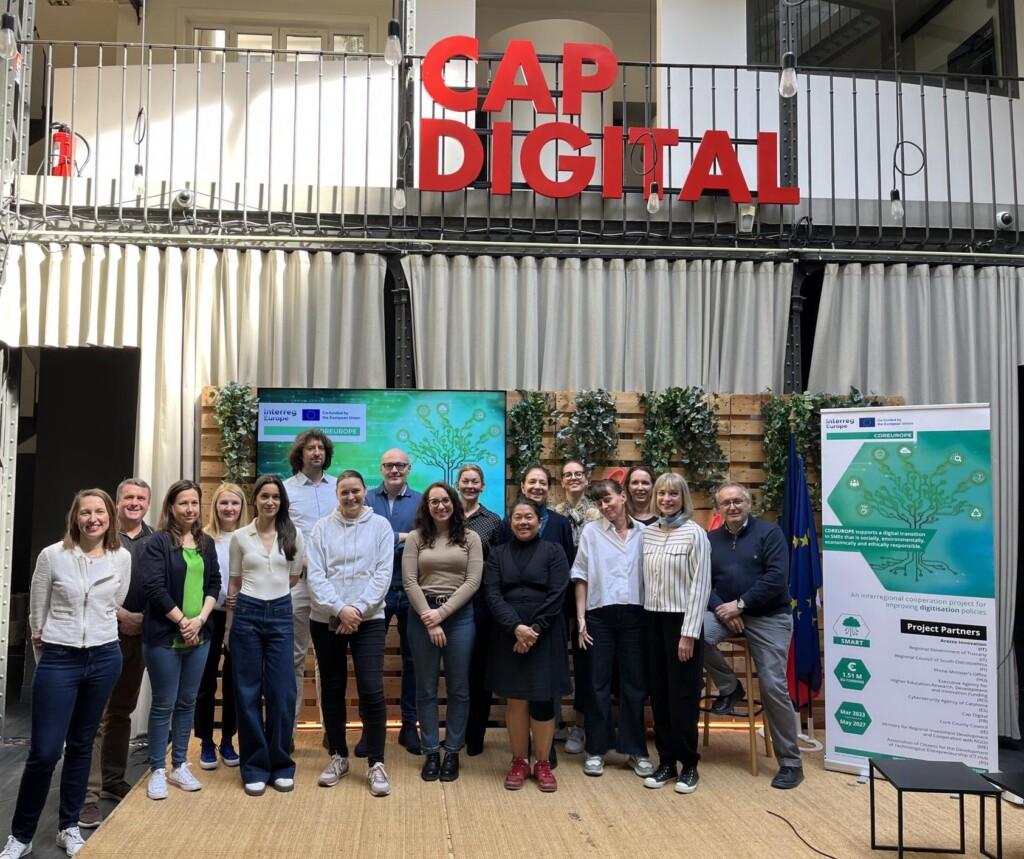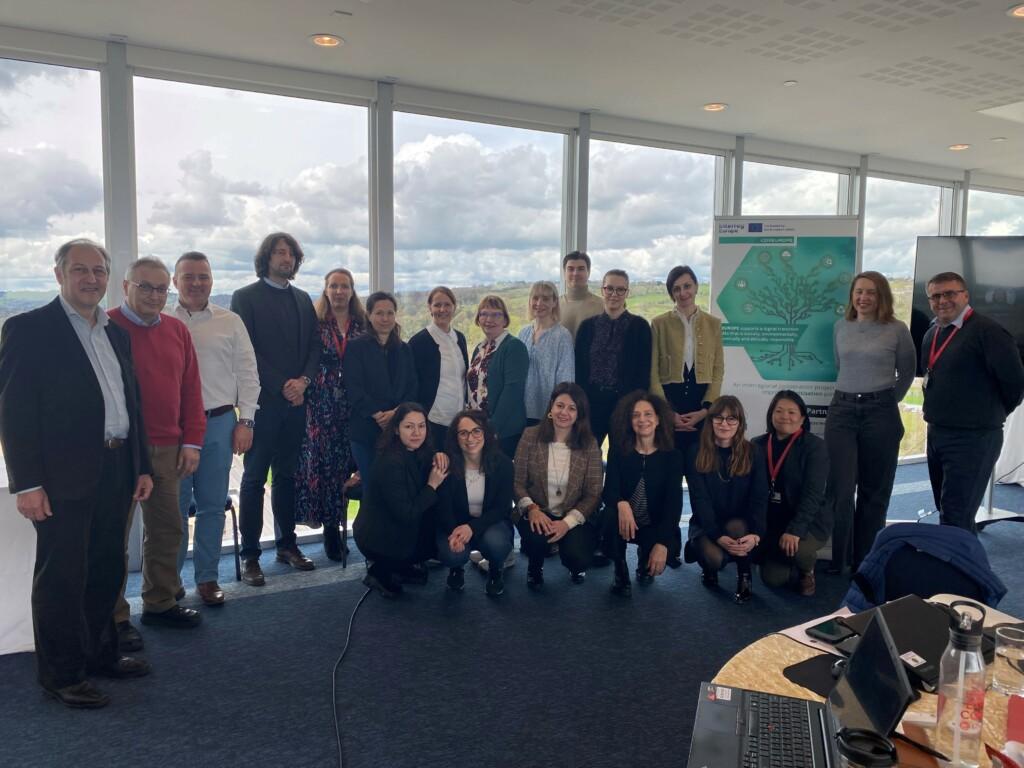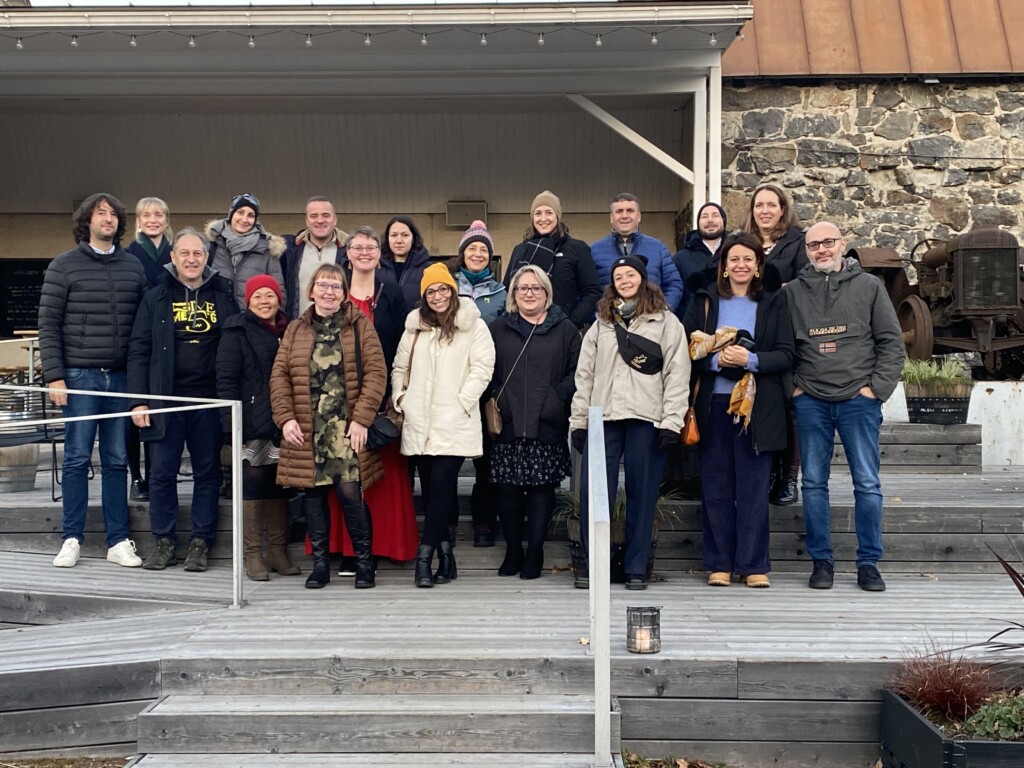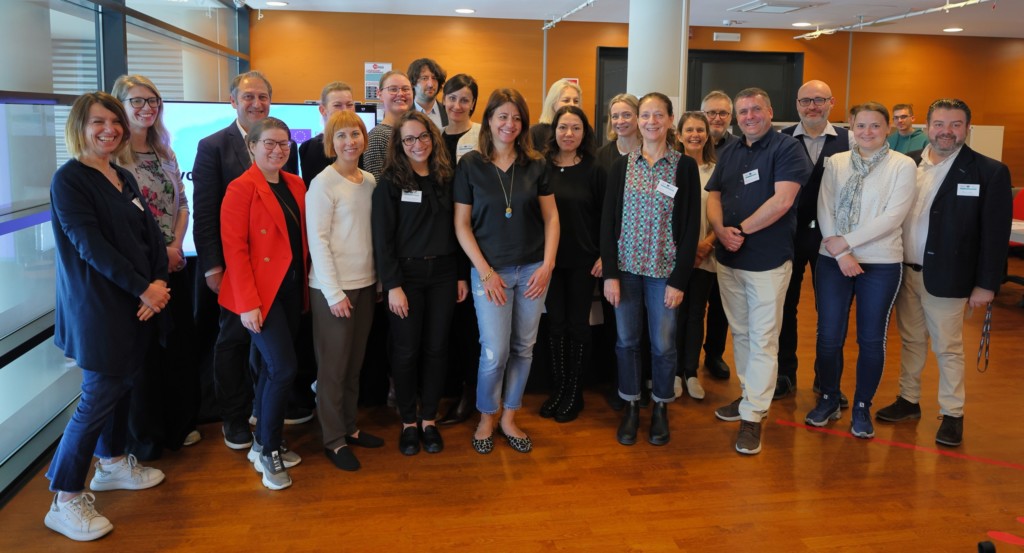CDR EUROPE

Corporate Digital Responsibility in Europe
- Duration: 1. phase 1.3.2023–1.3.2026 and 2. phase 1.3.2026–1.3.2027
- Project webpage
- Lead Partner: Arezzo Innovation, Italy
- Partners:
- Regional Government of Tuscany (Italy)
- Prime Minister’s Office (Hungary)
- Executive Agency for Higher Education, Research, Development and Innovation Funding (Romania)
- Catalan Cybersecurity Agency (Spain)
- Cap Digital (France)
- Cork County Council ( Ireland)
- Regional Council of South Ostrobothnia (Finland)
- Funding programme: Interreg Europe 2021-2027
- Total budget: 1.92 million euros
- Regional Stakeholder Group:
- Into Seinäjoki
- Leader Aisapari
- Leader Kuudestaan
- Leader Liiveri
- Leader Suupohja
- Sedu Vocational School
- Seinäjoki University of Applied Sciences
- South Ostrobothnia Centre for Economic Development, Transport and the Environment
- South Ostrobothnia Chamber of Commerce
The Project in Short:
The project describes and transfers good practices on Corporate Digital Responsibility among European partners. In the project, information related to CDR is also distributed and surveys are carried out to companies in the regions regarding the level of expertise in the subject.
CDR EUROPE encourages companies to consider social, economic, technological and environmental aspects in the production and use of digital technologies and processes, including:
- Their relationship with people and society: privacy protection, digital diversity/inclusion and socially ethical practices;
- Responsible management of economic impacts: replacing human jobs with digital technology, creating new digital jobs, sharing the economic benefits of digitalization with society.
- Responsible Technology Creation: Artificial Intelligence Algorithms, Harmless Digital Technologies, Cyber Security and Responsible Data Validation.
- Digital technologies and the environment: responsible disposal and recycling practices, extending the life cycle of technology and limiting energy consumption.
Good Practices
Interreg Europe projects produce good practices as part of improving regional development strategies and enhancing policy measures. The sharing and application of these practices across different regions enable the dissemination of innovative and effective solutions beyond borders.
More information: 👉 CDREUROPE good practises – Interreg Europe
🇫🇮 Finland
DigiNet – Digitalising Business Networks (South Ostrobothnia, Finland)
DigiNet Project: The Digitalizing Business Networks (DigiNet) project is a joint initiative of the University of Vaasa and Seinäjoki University of Applied Sciences (SeAMK), implemented from 2023 to 2025. The project aims to promote the digitalization of small and medium-sized manufacturing companies and their networks in the South Ostrobothnia region. DigiNet is co-funded by the European Union.
- The project’s key objectives:
- Increase awareness of the opportunities that digitalization offers for developing business processes in SMEs.
- Provide concrete support for the digitalization of business networks, which can enhance efficiency and improve competitiveness.
- Design and develop tools and platforms to support operational development.
- As part of the project, a free DigiNet test has been developed to help manufacturing companies assess the digitalization status of their networks, receive feedback, and identify clear areas for improvement. Completing the test takes approximately 10–15 minutes, and it allows companies to compare their situation with other respondents.
FarmGuard – Strengthening Cyber Security in Farms and Horticultural Enterprises
FarmGuard is a project coordinated by Seinäjoki University of Applied Sciences (SeAMK) and will be implemented from 2024 to 2026. The goal of the project is to improve cybersecurity in farms and horticultural enterprises through practical solutions and to raise awareness of digital-era threats in rural areas. FarmGuard is co-funded by the European Union. You can access the FarmGuard project page (in Finnish) here.
The main objectives of the project are:
- To develop practical tools for improving farm-level cybersecurity.
- To provide training, workshops, and materials to support businesses and rural advisors.
- To increase skills and readiness in identifying and managing cyber risks.
- To strengthen collaboration between the agriculture and ICT sectors.
- To bring cybersecurity into focus as part of a responsible and resilient food system and rural advisory services.
As part of the project, a Farm Cybersecurity Path will be developed to help farms assess their current cybersecurity status and guide them toward concrete improvements. The model is designed to be easily scalable and transferable to other rural areas in Finland and the EU.
Practical Actions for Sustainability – A Knowledge Transfer Project (Kauhava and Lapua, Finland)
Practical Actions for Sustainability is a project implemented by Suomen Yrittäjäopisto (Finnish Institute for Enterprise Management). The aim is to provide concrete, practical tools for strengthening, communicating, and verifying sustainability in businesses located in the Kauhava and Lapua regions. The project is co-funded by the European Union and will run until April 2026.
The main objectives of the project are:
- To raise awareness about the significance and potential of sustainability in SME business development.
- To provide practical tools and methods for implementing and communicating responsible practices.
- To promote networking and knowledge exchange among businesses on sustainability themes.
During the project, various events such as workshops and seminars are organized, covering topics like leadership, supervisor skills, and stress management. In addition, companies are provided with tools such as the Sustainable Business Canvas, which helps assess and improve sustainability across different areas of their operations.
More information on the project and upcoming events is available on the website of Suomen Yrittäjäopisto (in Finnish):
🔗 Practical Actions for Sustainability – Project page
🇪🇸 Spain
Discover vulnerability to phishing attacks from your organization’s employees (Catalonia, Spain)
Simulation campaigns test employees’ ability to recognize phishing emails and assess the organization’s cybersecurity resilience.
🇮🇪 Irlanti
Digital for Business (South, Ireland)
An initiative that supports SMEs in adopting digital tools and methods throughout their operations, accelerating growth and scalability.
🇭🇺 Hungary
VALI – Entrepreneurship Information Portal
VALI is a business portal designed for SMEs, providing up-to-date and customizable information to support decision-making. It saves time by offering authentic content from various sources and promotes digital responsibility.
🇷🇴 Romania
M100 Mirror Mission Cities Hub Romania
An EU-level platform supporting Romanian cities in achieving climate neutrality as part of the EU Mission Cities goals.
🇫🇷 France
The Digital, smart, sober and inclusive Smart Services Platform for Paris Region (Île-de-France, France)
A platform that leverages public and private sector data to develop smart services, enhancing the region’s attractiveness and sustainability.
Cheque Cyber / Cyber Vouchers (Île-de-France, France)
SMEs are offered a cybersecurity analysis and an actionable improvement plan, funded through the “Diagnostic CYBER” support scheme.
🇮🇹 Italy
Microinnovation Call (ERDF 2014-2020) and Digital Enterprise Call (ERDF 2021-2027) (Tuscany, Italy)
Two funding schemes supporting SMEs in their digital transition and increasing awareness of Corporate Digital Responsibility (CDR).
Project meetings





Project news
- Here you can find the International CDR Manifesto
- CDR EUROPE project podcast
- Project Youtube-channel
- 07/23: CDR Europe project visiting CDR Manifesto podcast.
- 10/23: 2nd CDR EUROPE Project Meeting hosted in South Ostrobothnia
- 11/23: Article about the latest project partner meeting at Seinäjoki, published in the “Greetings from South Ostrobothnia” -newsletter
Documents produced by the project
Here you can find summaries of the documents produced by the project. You can request the full document from us by email.
- Interregional SWOT analysis
- The CDR EUROPE interregional SWOT analysis has compared the identified strengths, weaknesses, opportunities and threats in adopting Corporate Digital Responsibility in the seven project regions.
- The aim of the SWOT analysis at regional level was to help partners understand their own starting points, and the interregional analysis aims to identify where the regions have similarities and differences.
- Key strengths: progressively increasing awareness of cyber security and a focus on sustainability and reducing energy consumption.
- Key weaknesses: lack of awareness of CDR and its different components, lack of indicators measuring the effectiveness of clean energy transition, lack of concrete measures on cybersecurity.
- Key opportunities: EU level regulation, increased educational opportunities and growing attention to cybersecurity.
- Key threats: lack of interest for CDR, misuse of AI, lack of transparency, international challenges.
- Analysis of the Interregional SME Survey – Challenges of implementing CDR in SMEs in each partner region.
